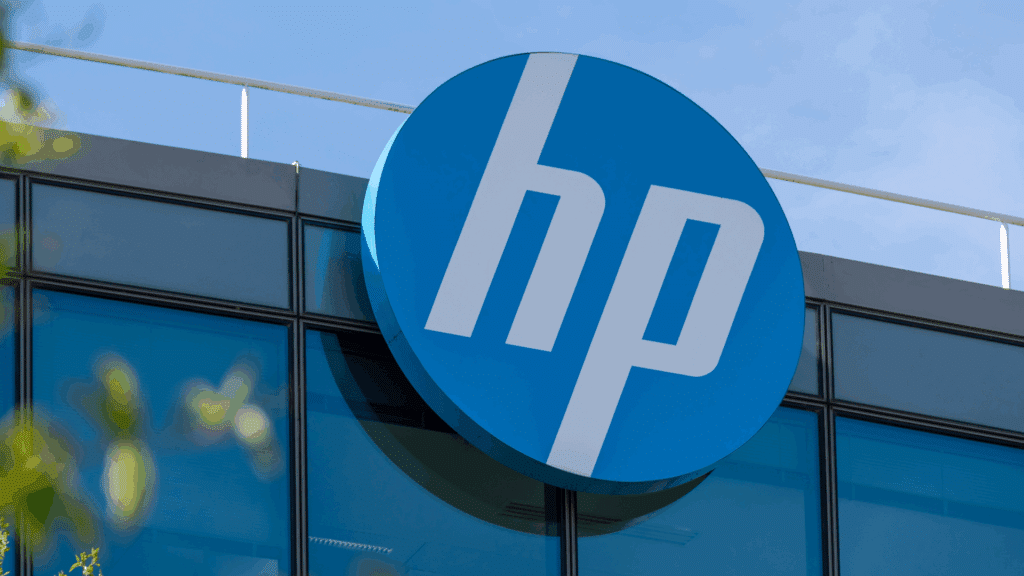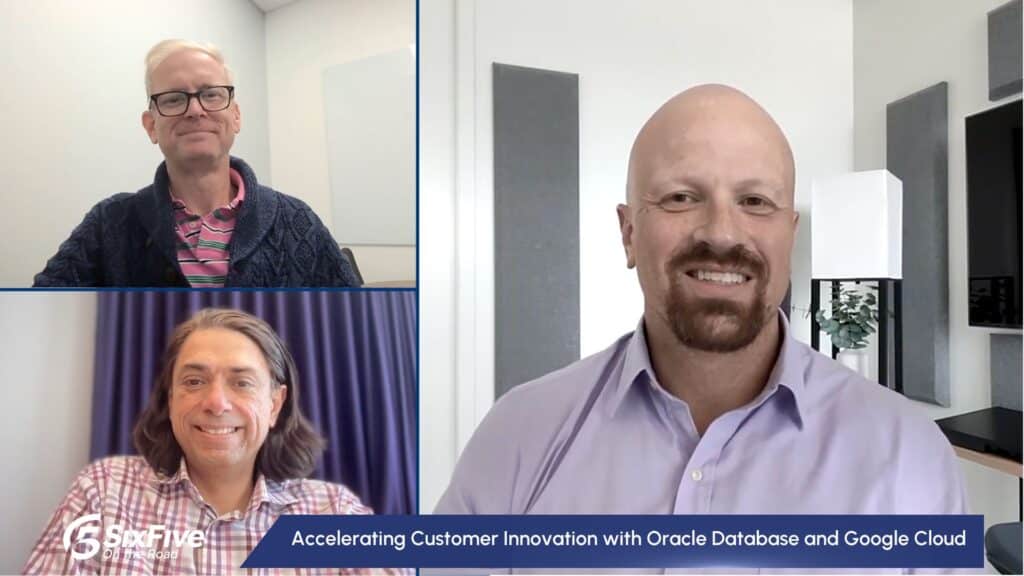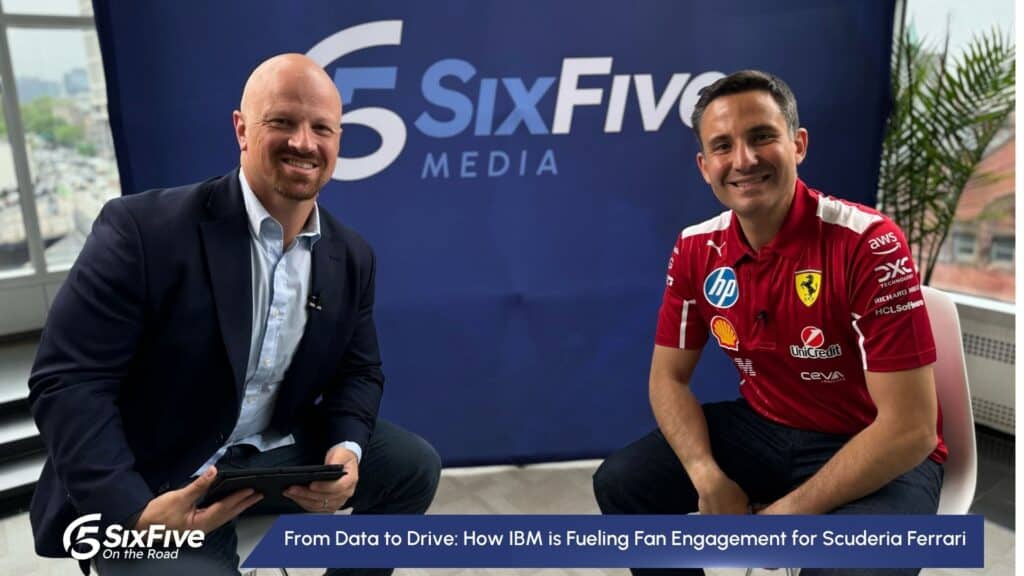On this episode of The Six Five – Insiders Edition we are joined by Alan Trefler, CEO of Pegasystems for a conversation on the upcoming PegaWorld iNspire — a 2 and half hour virtual event on May 24, 2022.
Their conversation covered:
- What attendees can expect from PegaWorld
- Some of the key themes that will be covered
- A dive into Pega and low code
- How Pega is bringing AI and automation together
If you’d like to register for this year’s PegaWorld iNspire you can do register here. And don’t forget to subscribe to The Six Five webcast so you never miss an episode.
Watch our interview with Alan here:
Listen to the episode on your favorite streaming platform:
Disclaimer: The Six Five Webcast is for information and entertainment purposes only. Over the course of this webcast, we may talk about companies that are publicly traded and we may even reference that fact and their equity share price, but please do not take anything that we say as a recommendation about what you should do with your investment dollars. We are not investment advisors and we do not ask that you treat us as such.
Transcript:
Daniel Newman: Hey everybody. Welcome to The Six Five Podcast for an Insider Edition today, joined by my co-host Mr. Patrick Moorhead. Patrick, how are you doing today?
Patrick Moorhead: Doing great. Our backgrounds look mysteriously similar, Daniel. Maybe we’re in an undisclosed location in a bunker in San Jose.
Daniel Newman: We may be in San Jose, or we may be in any Marriott in any town. I don’t know, but we are somewhere and we do look conspicuously similar. Great to see you, excited about today. We’re going to have Alan Trefler, the CEO of Pega, join us. It’s becoming a bit of a trend for you and I to have Alan join us each year, a head of Pega, to help us preview the big PegaWorld event. A lot going on in that space, not going to spoil that. But Patrick, before I invite Alan on, you ready to rock and roll and have this conversation?
Patrick Moorhead: I am ready to rock and roll and talk automation, AI, CX, all that stuff.
Daniel Newman: Bringing him on could be the next best experience. Why don’t we… The next best action would be to bring him on so that we can have that experience.
Patrick Moorhead: Let’s do it.
Daniel Newman: So, Alan, let’s welcome to the show.
Alan Trefler: Hey. Hi, Dan. Hi, Pat. Great to be here.
Patrick Moorhead: How are you doing?
Alan Trefler: I’m well. I’m well. I don’t have… Obviously, the exciting life on the road today guys do, but it’s very interesting coordinate you did to make sure that the good theme. I like that.
Patrick Moorhead: Yeah. It’s fun. We’ve gone from how many trips did you take this month to how many cities am I going to visit this week? Is it going to be four? Is it going to be five? But no, it’s good to be back on the road, Alan, and really appreciate you taking the time to do this. You’ve become a staple at The Six Five, and we’re always excited to hear everything new that’s going on at Pega, but more importantly at PegaWorld. So we will dive right into this and just talk about what this year can attendees expect from the big show. What are the key themes? What are the keynotes?
Alan Trefler: So, we’ve put a lot of work into it. Being forced, like we all were, to flip to virtual, I think got us to believe that we had to double down on making this exciting and worthwhile. So, we’ve compressed it. So we’ve taken what historically had been over two full days of content and really found a way to insinuate the very best parts into two and a half hours. And I’m going to tell you, it’s going to be jam packed. I can talk about the keynotes, the announcements, and a couple of secret things that, well, I don’t want to give it all away, want people to actually show up. So-
Patrick Moorhead: I think that’s good. So first off, is it remote? Is it hybrid? How are you running the two hours? I’m assuming it’s remote.
Alan Trefler: We decided to do it remote. We decided that we would put the effort in to make it so that it was going to be a topnotch experience for people who would be joining over the internet. And so that is the vehicle for this year’s PegaWorld. I think we’ll be back to physical next year, but given when we had to schedule and organize it, it was just a very difficult time given the lead time that’s required on these things.
Daniel Newman: Yeah. I think it’s a interesting moment in time right now for events, Alan. I’ve said this, Pat’s heard me on the soapbox a few times, but I’m going to use this as an opportunity to get back on it one more time. It’s been an interesting… To watch. It’s been an interesting moment to watch companies that have been talking a lot about staying remote, hybrid, all the benefits, productivity. We don’t need to travel anymore. We need to reduce our carbon foot.
A lot of different things that were in the discussion, but at the same time, you can totally see visibly in the market, the human condition that we want to get back in person, because it was the moment that you felt the restrictions loosen up. We just saw event, event, event, event. Pat and I, during one week in May, I think we had 14 or 15 live event invitations in the same week that we were navigating. So everyone’s like, “Yeah.” And one side of the story is, “Yeah, we want to stay remote and keep everyone productive.” And the other side, Alan, was, “The second we can get everyone back together, let’s do it.”
Alan Trefler: Well, I think… Look, people are finding their way. And we go through periods of time when something changes and inevitably there can be a reaction or sometimes even an overreaction. What we’ve come to understand is, I think a lot of companies have, is that being able to do things in the virtual world puts a tremendous amount of power into the hands of… Well, just large populations of people who can do things without that level of coordination and preparation that they used to have to do when they would travel globally.
And what I love is that we’ll now be able to have so many more people spend the two and a half hours with us than we would’ve ever gotten with the six or 7,000 that might have joined us in Vegas. So from my point of view, it’s… Well, two edged. Right? On one edge, you got… Boy, people love to be together. On the other side, the additional exposure, the ability to contact and engage with that many more people, it’s positive. And I’m hoping we continue, even when we start having more physical events, to take the learnings that we’ve had from the virtual world and really double down on those as well.
Daniel Newman: Well, Pat and I will tell you, Alan, that with our Six Five Summit, we’ve kept it remote and virtual, just for the sake of being able to get the absolute best people to come and speak how much more flexibility enables more people to participate. That just wouldn’t all be able to come into one place at one time. Okay, we can debate the event future, and to some extent, like I said, I got to get off that bandwagon, but it’s super interesting to me to watch it all happen. But let’s get you up with the next question. You always give really provocative keynotes. I can still remember going years back. First time I attended one of your events, you were certainly unapologetic for challenging the competition. Sometimes calling it out straightforward, just what they’re doing and what you’re doing and why it’s better, always love that. What can the audience that’s going to come expect from this year’s Alan Trefler kick off of the PegaWorld event?
Alan Trefler: Well, I think that PegaWorld is about helping our clients connect with some of the thinking that we bring in from our customers. So maybe we talk about that in a moment, some of the great clients who have come in and will be coming in from around the world to be able to present to the audience. But also we try to share some of the key elements of our latest thinking. And I think as organizations, we all realize that we’ve moved to our very cloud world, that the whole way people think about work and technology has changed enormously.
But in this transition there’s been a lot that’s been, well, frankly, made more complicated. Being able to overcome the gaps in having people working together by having virtual teams who can operate in an engaged way is… We think absolutely central to what we’re going to be able to bring to our clients. So we talk about this concept of a process fabric. How do you create a fabric that can wrap and envelope the different aspects of the business and the different ways somebody engages with clients? And make sure that the intelligence, makes sure that the continuity of engagement, makes sure that every interaction is as smart as it can be and effective as it can be and followed up in whatever way it should. That’s what we’re focusing on at PegaWorld this year with both new offerings and some terrific stories.
Patrick Moorhead: So yeah, I’m really looking forward to hearing about how you’re looking at resiliency, focus, complexity, and what’s become really evident, this notion of hyper automation. So Alan, you said before that enterprises need a new take on traditional thinking with forward looking tools to get things done. And I’m curious. Is this focused more on the automation and AI piece?
Alan Trefler: Well, we think that bringing together AI and bringing together automation is how you achieve hyper automation, how you have systems that actually learn from the work that they’ve done, and bring that learning to the work that they’re going to do. How systems can learn from what works with clients and what doesn’t work with clients, so that they’re in a position… Well, the organizations are in a position to have their systems help their people, not replace them, not obviate the human engagement, which we want, but optimize that human engagement by making and having the systems just be a critical and ongoing piece.
So for example, one of the things we’re going to highlight is this really exciting, what we call, “voice artificial intelligence”, which is an ability for the system to actually enlisting to a phone call or a verbal engagement with a customer, can actually learn and pluck the words out so that it can actually provide guidance even while somebody is on the phone, but not having to type anything. Or it’s able to fill in information that otherwise somebody would have to record. So being able to bring artificial intelligence into the process of getting work done-
Patrick Moorhead: Right.
Alan Trefler: … Is everything that we’ve been working on for the last year.
Patrick Moorhead: In each successive generation, we’ve seen a higher expectation for service. Right? And in a way what it does, it really challenges all companies that… You’re going to have to be supporting six generations at the same time with varying levels of expectations. And I had a really interesting conversation with a CEO of a large cloud company last week. And he was joking that, “Listen, here’s what we know for sure. We’re not going to magically find some island in the middle of the ocean with a million new people. Right? That we can put in the workforce.”
In fact, I think what we’re seeing is the amount of people are actually declining in certain countries. And there seems to be a trend that the more affluent a country gets, the less people they have. So you have to augment people and help people with the idea of automation. And in a way, I always like to say, getting so good at it that what your customers want or your customers’ customers want before they even know. And I know that’s a bit idealistic and a little bit visionary, but I think that’s where the expectation is going. That’s just the expectation today.
Alan Trefler: Well, if you know a lot about your customers, what they’re doing, what their behavior patterns are, you can actually synthesize that into finding patterns that will help you make the right suggestions, provide the right guidance. But it’s interesting because you talked about a cloud company. It’s not just that you can start with an island of new people. You also then get to start by ripping out all your existing technology. A critical part of what we talk about and what we’ll be showing is how you can get rid of these… We actually sometimes refer to them as islands of automation that exists. All the technical debt, all the legacy-
Patrick Moorhead: Right.
Alan Trefler: … That isn’t just for technologists. It dramatically affects businesses. And what’s interesting is the advent of cloud applications and cloud systems is as you’d actually expect, if you thought about it, creating additional complexity in many environments. So this idea of a fabric to weave this together, organized around AI principles, and being able to really, well, hold together the relationship with the customer at the same time that the staff is turning over at record rates and then often cases unavailable. Those are exactly the problems and exactly the opportunities that PegaWorld is going to be addressing.
Daniel Newman: Another thing that you often talked about, and this was over the past several years, it’s grown in popularity. It’s become an increasing trend line within the automation space, is the low code side of things. So there’s low code, no code, intelligent automation at scale depends on both your developers, but also your analysts and frontline workers, being able to develop processes that they understand better and be able to implement it themselves. And we’ve seen a ton of momentum towards that area. So how do you see that shaping up? Is this still the trend line, low code, no code? Is it still going to be a big part.. Is it big part of your plans?
Alan Trefler: Well, it’s not just part of our plans. It’s actually our heritage. It’s where we’ve come from. If you think about it, Pega’s always talked about being… The phrase we used was “Model driven”, which basically means you’re able to create a model of how you want your processes to run, how you want your decisions to be made. That gets then augmented with data and actual real life experience. And the whole idea is to make it so instead of people manually writing code, the system itself, we refer to it as software that writes software, the system itself is able to literally do the programming.
I think the low code terminology sometimes can miss how much code some of these “low code systems” require. We, I think, have been very fortunate having done this for a long time, that we understand how to make that so it’s effectively zero, so that the model can encompass all the work that somebody wants to do. And that is absolutely at the center of everything that Pega does. And all of the things we’re going to be talking about at PegaWorld.
Patrick Moorhead: Yeah. So we talked about intelligent automation for faster outcomes and there’s a couple ways to do that. One of those is through batch mode. Right? If I can use a old financial term, it’s delayed. Right? Where you have all this information and algorithms to determine what your customers want. And then maybe you send them an email or it-
Alan Trefler: We know how much we like those. Right?
Patrick Moorhead: Exactly.
Alan Trefler: We refer to them as “spam”.
Patrick Moorhead: But are we to the point where the technology is so good where you can have real time, AI can help in one on one real time customer engagement?
Alan Trefler: Absolutely. And I think that that’s critical for organizations to be able to do the right things in the moment for the customer-
Patrick Moorhead: And what’s an example? Is that where you have a customer right in front of you, at the teller? Or is it more on a phone call or on a website? What’s a good example of that today?
Alan Trefler: Well, I think a great example would be if somebody on a website, and they’re going, and as they make choices and make decisions based on bringing together that real time behavior, with the historical information you have, you make the “next best action”, as we refer to it-
Patrick Moorhead: Yeah.
Alan Trefler: … Suggestion. But then if they were to say, “Hey, I want to talk to somebody,” and they either do a chat or they call the contact center, that real time continues across the different channels. Because instead of having a locked into a channel way of thinking, you have what we refer to as a “center outweigh” of thinking, where you’re really thinking about the client and how you serve that client, not about the particular mode they may be in at a given minute.
Patrick Moorhead: So real value, real benefit, happier customers today, not a vision slide, something I’ve got to rip out, all the ins of what I’ve invested in the last 30 years.
Alan Trefler: Yeah, a big part of what we’re focusing on is how do you take the clients’ existing investment and existing estate, and then weave this fabric into it? So that if somebody’s decided that, well, maybe they have a homegrown system, maybe they’ve stuck a Salesforce system in… Whatever they’ve done, how do we become the brain and the muscle that can power that through the different channels that the customer has? And I think when we have some of our clients like booking.com, or T-Mobile, or talk at PegaWorld, people will hear just amazing, amazing stories from clients themselves that talk about what they’ve achieved and where they’re going.
Daniel Newman: So I want to come pull a few threads together here and end on something that I’m sure you have a point of view, Alan, and it’s… All of this automation, all this data, all this intelligence has brought a new concern about privacy to the forefront. In order to deliver next best action and great experiences people have had to make some compromise or decide potentially… Or do they? And that’s my question is, can your customers and partners deploy solutions that still deliver this best of class one-on-one engagement, intelligent, great customer service without having to sacrifice their data privacy, or at least have it managed in a way that’s going to meet what I think the world is looking for in terms of more transparency.
Alan Trefler: Well, I love the way you talked about pulling threads together. I think that fits beautifully with the process fabric metaphor. So I don’t know if that was intentional-
Daniel Newman: Yeah.
Alan Trefler: … Subliminal, but I like that. What I would tell you is that our customers and the people we’re dealing with, really, are using what you would refer to as “first party data”. They’re using their experiences with their customers. They’re using their knowledge about their clients, and that gives them a base from which they can operate in a way that the customers are and will be comfortable. It’s not like data’s being marketed and sold to them, or they’re picking off things based on stuff the client doesn’t know. But even more importantly than that, we have built in what we call “ethical AI” into our environment, where the system needs…
Our systems, given the industries that we’re in, often need to be able to explain why they made a particular decision for a customer and need to be empathetic in terms of deciding what they’re going to offer, why they’re going to offer it, how they’re going to offer it, and doing the right record keeping. So you can go back a year or two later and explain what you did for a customer at what time and why. And so by putting that in our system, by having customers who were really focusing on their interaction with their clients, we think that our clients are in a great place in a great position.
Patrick Moorhead: Yeah. So Alan, most important question to wrap up here, how do I get to PegaWorld? How do I just get the website, register, everybody’s allowed to come in?
Alan Trefler: Yes, it’s there. Go to PegaWorld, it doesn’t cost anything. We’re doing a replay for Asia, so that if you’re in a time zone that won’t work with our original one, that people can see it. And I think it’s going to be an enormously exciting two and a half hours. It’s something that I know we’re going to have many more people attend. And the feedback we’ve gotten from, for example, last year was just off the charts positive. And this year’s going to be way better.
Patrick Moorhead: Yeah. So, Alan, I just want to thank you for coming on “The Six Five” for an insider and everybody out there, if you want to know the best in two and a half hours, resiliency, focus, reducing a plexity hyper automation tool into PegaWorld. But for that, just want to thank you for coming.
Alan Trefler: Yeah. Thank you, Pat. Thank you, Dan. It’s a pleasure.
Patrick Moorhead: Thanks.
Daniel Newman: Everybody, go ahead, sign up. But also subscribe to The Six Five, because we love you joining us here as well. And we got a lot of insider editions with great thinkers and leaders like Alan Trefler here, CEO of Pega. Check out PegaWorld, and of course, check out The Six Five Summit. We appreciate you all. Thanks for tuning in. We’ll see you later.
Author Information
Daniel is the CEO of The Futurum Group. Living his life at the intersection of people and technology, Daniel works with the world’s largest technology brands exploring Digital Transformation and how it is influencing the enterprise.
From the leading edge of AI to global technology policy, Daniel makes the connections between business, people and tech that are required for companies to benefit most from their technology investments. Daniel is a top 5 globally ranked industry analyst and his ideas are regularly cited or shared in television appearances by CNBC, Bloomberg, Wall Street Journal and hundreds of other sites around the world.
A 7x Best-Selling Author including his most recent book “Human/Machine.” Daniel is also a Forbes and MarketWatch (Dow Jones) contributor.
An MBA and Former Graduate Adjunct Faculty, Daniel is an Austin Texas transplant after 40 years in Chicago. His speaking takes him around the world each year as he shares his vision of the role technology will play in our future.







